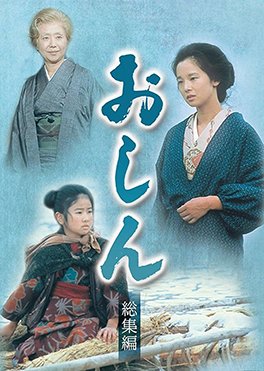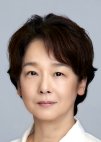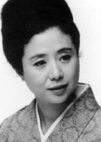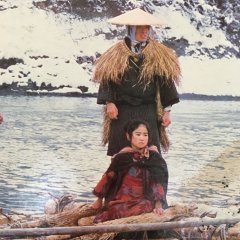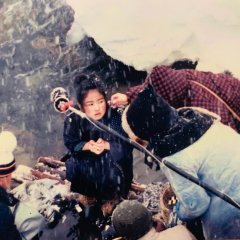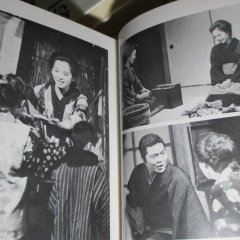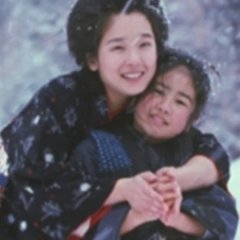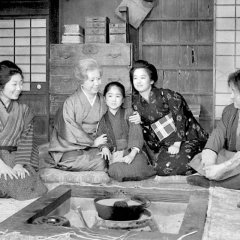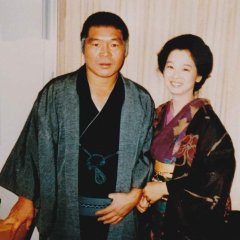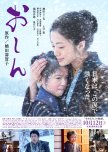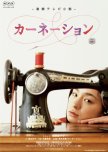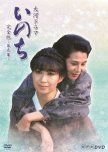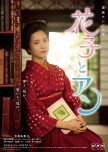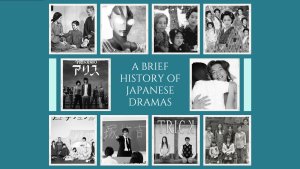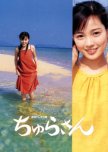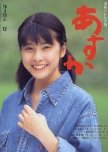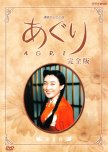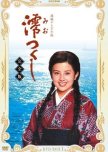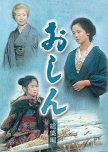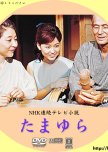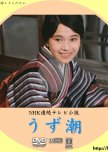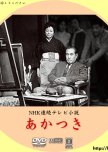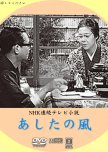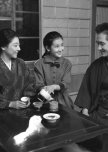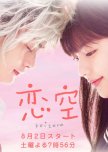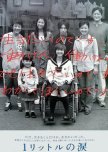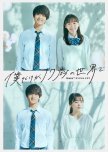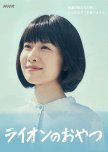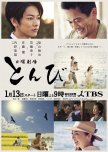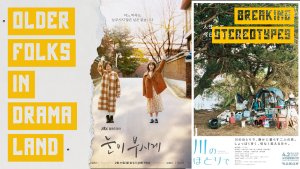 Breaking Stereotypes: Older Folks in Dramaland
Breaking Stereotypes: Older Folks in Dramaland In the spring of 1983 (Showa 58), Tanokura Shin, the elderly founder of a supermarket chain in Mie Prefecture, mysteriously disappeared on the day of her 17th store's grand opening. Her adopted grandson, Kei Yashiro, set off to find her, following clues from memories shared by Oshin. He tracked her to Ginzan Onsen in Yamagata Prefecture, where she refused to return home. Instead, she insisted on visiting a deserted mountain village. Kei carried Oshin through the snow to the village, where she was moved by the sight of her ruined childhood home. Oshin then revealed that her journey was not only to reflect on her life but also to understand how her son, Hitoshi, became a self-centered businessman. (Source: MyDramaList) Edit Translation
- English
- Українська
- magyar / magyar nyelv
- dansk
- Native Title: おしん
- Also Known As:
- Screenwriter: Hashida Sugako
- Genres: Historical, Life, Drama, Family
Cast & Credits
- Tanaka Yuuko Main Role
- Kobayashi AyakoTanimura Oshin [Young]Main Role
- Otowa NobukoTanimura Oshin [Old]Main Role
- Watase TsunehikoNamiki Kota [Oshin's first love interest]Support Role
- Namiki ShiroTanokura Ryuzo [Oshin's husband]Support Role
- Izumi PinkoTanimura Fuji [Oshin's mother]Support Role
Reviews
An epic, iconic and life changing drama
I first watched this show as a young child and it helped me become who I am now. I didn't realise it then but it soon became a worldwide hit not just around Asia in the 1980s but it subsequently travelled to non-traditional viewing audiences such the Middle East and South Americas in the 1990s. Thus I'm surprised that no one has reviewed such an iconic and character-forming drama yet.First of all, the show was shot in the mid 1980s. As such, the scenes set in 'modern' Japan still look very dated. However if you ignore that, the rest of the show is set from the early 1900s all the way to the 1980s. Re-watching it now however, some bits that may have been acceptable in the 1980s probably wouldn't be accepted now. For instance, a teenage boy helps child Oshin out and a grown man lies naked with her to warm her up. It sounds icky but she was hypothermic. Also, there's a lot of domestic abuse and not to mention the obvious child labour. Although such scenes might accurately reflect the turn of the 20th century, I'm sure if Oshin were filmed today, I'm sure such scenes would be removed as they portray criminal acts. In this sense, the show feels dated because of when it was filmed yet ironically true to the period it's portraying.
Second, what I disliked about the show. It's in 15 minute episodes spread over nearly 300 episodes, which makes it hard to watch today in a time poor world. I know that it was broadcast in a different era and it certainly kept my dinner times busy for nearly a year back then. However, the show never feels draggy. Each episode ends exactly at a cliffhanger, that's brilliant editing! I don't expect the show to be cut but I really hope NHK or a subscription service such as Netflix would connect them into 1 or 1 ¼ hour episodes typical of these days.
Third, what I liked about the show: the story of course! It's very tightly written with no lapses in logic or loose ends. I do not like how many of the male characters treated the women but it was typical of the time it portrays. Yet in spite of the strongly paternalistic culture, the highlight of the show is the strong women characters. They not only stayed resilient despite their circumstances and what life threw at them, but were in fact stronger than their men. They were the silent and long suffering foundations holding up their men who had fragile egos. They are inspirational! Oshin in particular unlike her long suffering mother showed that she's no pushover. She knew how to tread the thin line between yielding to someone of power yet persevering and in the process, winning over her worst critics. She got through with sheer grit and hard work.
I also like the growth we see across the three Oshins. While the child Oshin was abused, naive and unconfident, the young-middle aged Oshin grew in confidence and learned to stand on her own two feet and fiercely protect those she loved. Yet it was a life lived not without regrets, and in the older Oshin we see a deeply reflective person who gives a flick to her needy and disappointing next generation. I like all three actors who played Oshin.

A stressful watch
Few dramas have stressed me as much as Oshin, and it's all because the female lead's life can only be described as: struggled and conquered. In every corner there was an issue for her to overcome, and in every corner I was right there with her, anxious and stressed over what she was about to suffer.So while I absolutely see its merit and understand why people loved and continue to love this story so much, I can't help but rate it based on my enjoyment, and sadly I barely enjoyed this. The level of vitriol and abuse that Oshin suffers from so many people in her life (her father, her brother, her husband, her mother-in-law), made this so very tiresome to watch, and almost impossible to finish, I had to keep stopping constantly to the point where I lost count how many times I put this "on hold".
And yes, it is 100% a product of its time, but I'm a 21st century woman and I can't help but judge it based on my 21st century values, and to watch her husband beat her multiple times, once to the point where she was left disabled, was unbearable. Even more so because this is an 80s story set in the Meiji era, so his behavior was not only never criticized, but all in all their relationship was portrayed as prosperous, where she says many times that she was happy and proud to have been his wife. So it's safe to say that this did not make an exciting watch for me.
I'm sad that this is how I feel about such a beloved classic, but I'm not someone to lie and say I liked something just because of its status. It is what it is.

